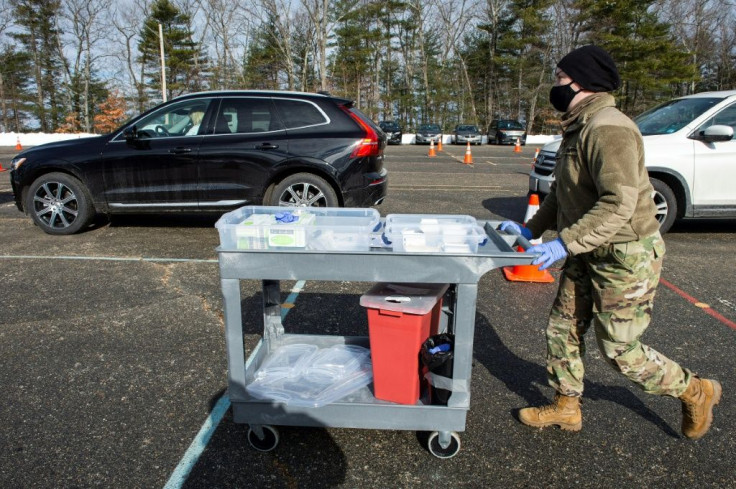Will The US Need To Call On National Guard, Navy To Help Supply Chains?
In its pursuit to ease supply shortages and reduce inflation, the Biden administration may call on the military to aid in this effort.
CNN reported that Geoff Freeman, president and CEO of the Consumer Brands Association, has encouraged President Joe Biden to consider deploying the National Guard or Navy to help get goods to suppliers’ shelves and to move supplies from crowded U.S. ports.
White House Press Secretary Jen Psaki said Tuesday that the administration would not be “taking options off the table” when asked if it would resort to using the military in the supply crisis.

Biden has been actively seeking new ways to help reduce the supply chain bottlenecks and the backlog of deliveries at U.S. ports. Last week, Biden traveled to Los Angeles where he spoke urgently about the need to make deliveries and cut down on the supply shortages.
“In order to be globally competitive, we need to improve our capacity to make things here in America while also moving finished products across the country and around the world,” said Biden.
The White House has also addressed concerns over whether stores will be stocked in time for the holiday season, but the problem remains how to get goods to suppliers. Secretary of Transportation Pete Buttigieg warned that there may not be enough truckers available to make deliveries, so the servicemembers can possibly make up for this labor shortfall.
The supply-and-demand imbalance in the economy has also contributed to rising inflation, according to the White House and the Federal Reserve. They suggest that the inflation will be temporary and will ease up with a loosening of the bottlenecks by next year.
Last month, the U.K. activated soldiers to help make deliveries of energy supplies to market ahead of what is expected to be a cold winter in Europe.
© Copyright IBTimes 2025. All rights reserved.





















